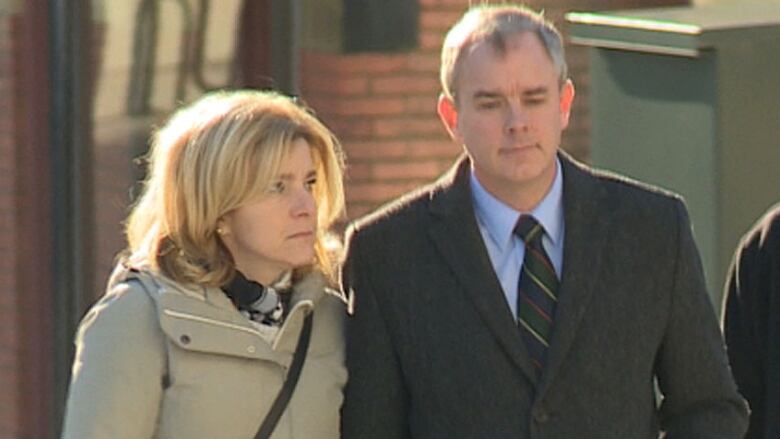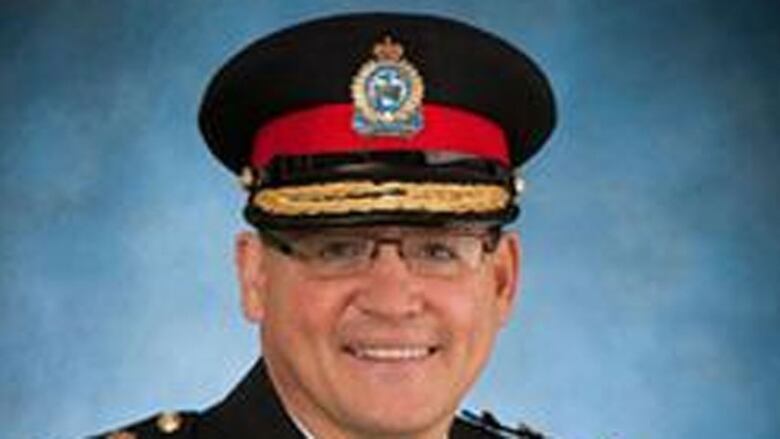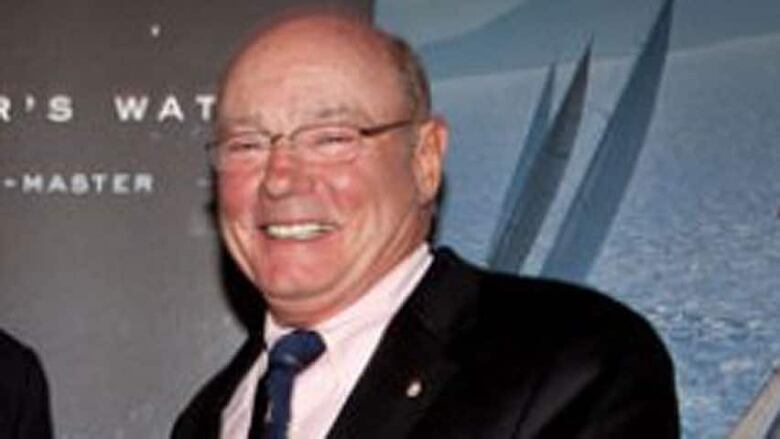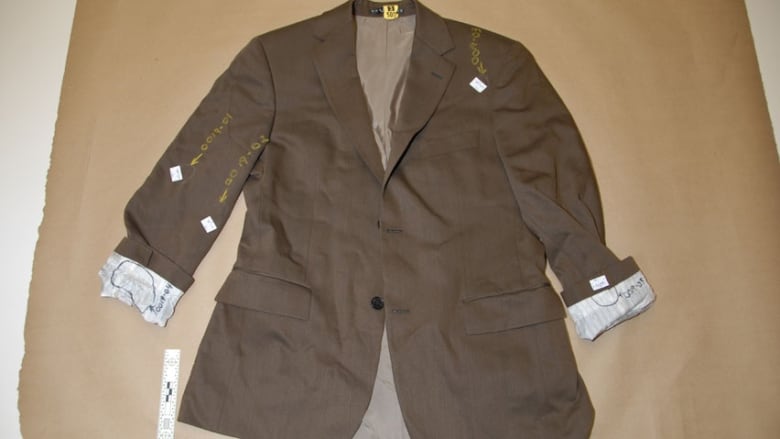Dennis Oland's guilty verdict 'validation' for police, says chief

The new chief of theSaint John Police Force says theguilty verdict at Dennis Oland's second-degree murder trial in the 2011 bludgeoning death of his fatherprovides "a degree of validation" for thebeleaguered force.

"As chief of police, I do take some solace in the fact that our investigative team and the force, as a whole, which have been under some intense scrutiny and assailed with criticism will have realized a degree of validation," said Bates.
"Not for a second, did I waiver in my belief or faith in their integrity, effort, or investigative skills."
Bates said he willaddress criticisms of the murder investigation "in further detail at a later date."
- Dennis Oland wails uncontrollably after guilty verdict in father's murder
- Dennis Oland's jury instructed on possible 'inadequate' investigation
- Saint John chief orders probe of allegations about deputy in Oland case
The investigation dates back to July 7, 2011, when thebody of prominent businessman Richard Olandwas discovered in his investment firmoffice, lying face down in a large pool of blood.
The 69-year-old multimillionaire had suffered 45 sharp and blunt force injuries to his head, neck and hands. No weapon was ever found.

Second-degree murder carries an automatic life sentence, but parole eligibility can range between 10 and 25 years. Olandis scheduled to be sentenced on Feb. 11.
He was initially considered a witness by police, but was quicklydeemed a suspectduring his videotaped statement,the trial heard.He was not charged, however, until more than two years later.
Investigation challenged by defence
During thetrial,Oland'sdefence teamraised questions aboutthe police investigation, including possible contamination of the crime scene.
The jury heard about officers failing to wear protective gloves and footwear coveringsin the blood-spattered office, including one senior officer, who admitted he went in "out of curiousity."
Officers also usedthe washroom located outside the officefor two days before it was tested for evidence, and openedthe back door, which the defence described as being the "preferred exit route" for the killer,before it could be checked for fingerprints.

The jacket, which remained in the bag for four months before it was examined, was found to havethree small bloodstains on it and theDNA extracted from those areas matched the victim's profile.
Court of Queen's Bench Justice John Walsh reviewed some of the evidence the jurors had heard about possible shortcomings inthe police investigation during his lengthy instructions to them, including the fact that officersfailed to ask the pathologist whether a drywall hammer was apossible weapon.
There were a lot of things we could have done better at the scene.- Glen McCloskey, deputy chief
Walsh described the case against Oland as being largely a circumstantial one and remindedthe jurors it was up to the Crown to prove its case beyond a reasonable doubt in order for them to convict.
It was the second time Walsh hadinstructed the jurors onevidence they hadheard "suggesting the police investigation was inadequate."
Earlier in the trial he had said: "It will be for you to determine whether evidence about the inadequacy of the police investigation alone, or along with other evidence, causes you to have a reasonable doubt about whether Dennis Oland committed the offence charged."
'No investigation is perfect'
Lead Crown prosecutor P.J. Veniotdownplayed any possible shortcomings in the investigation during his summation to the jury.
"No investigation is perfect," he had said. "Pointing the finger at police for something that was not done is not adifficulttask."
Several officers acknowledged in their testimony thatmistakeswere made.
"There were a lot of things we could have done better at the scene,"saidDeputy Chief Glen McCloskey,the veteran officer who admitted he went farther into the crime scene than the head forensics officer had instructed "out of curiosity" and that he was "embarrassed" by his actions.
McCloskeywill soonface an investigation by theNew Brunswick Police Commission over allegations that hesuggested another officer lie about his presence at the crime scene, the chief told CBC News.
Bates had askedthe independent oversight body in Octoberto "conduct a thorough investigation,"following testimony by retired staff sergeant Mike King at Oland's trial.
King testified under oath thatsome time last year, either before or during DennisOland'spreliminary inquiry, McCloskey, who wasan inspector at the time and his supervisor,referred to anotherofficer as being an "idiot" for having said thatMcCloskeyhad entered the scene.
King said his reaction was, "You were in the room."McCloskey'sreply, according to King, was, "Well, you don't have to tell them that."
McCloskey denied the allegations and suggested it was King who lied to the court because he was upset about being passed over for a promotion.
Former Fredericton police chief Barry MacKnight, who was appointed by the New Brunswick Police Commission to oversee the probe,was waiting for the trial to conclude.
"I suspect ChiefMacKnightwill begin his inquiry soon," Bates said.












_(720p).jpg)


 OFFICIAL HD MUSIC VIDEO.jpg)
.jpg)



























































































